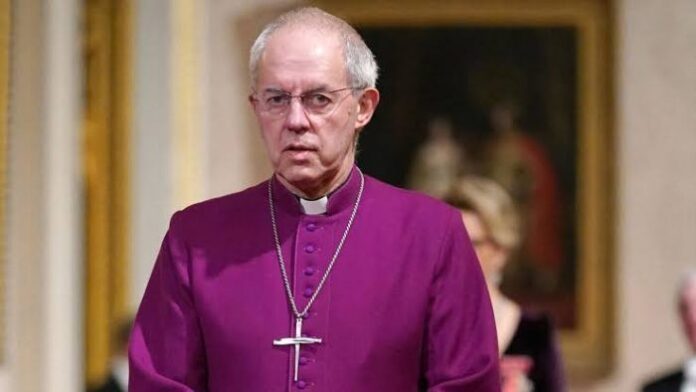The archbishop of Canterbury, the Most Rev. Justin Welby, on Tuesday announced his resignation, days after a report concluded that he had failed to ensure a proper investigation into claims that more than 100 boys and young men were abused decades ago at Christian summer camps.
The archbishop of Canterbury, the Most Rev. Justin Welby, on Tuesday announced his resignation, days after a report concluded that he had failed to ensure a proper investigation into claims that more than 100 boys and young men were abused decades ago at Christian summer camps.
Agency Reports indicated that pressure had mounted on Mr. Welby, the spiritual leader of 85 million Anglicans worldwide, after the report was published and after one senior figure in the church, the bishop of Newcastle, Helen-Ann Hartley, called on him publicly to step aside.
In a statement on Tuesday, Mr. Welby said, “It is very clear that I must take personal and institutional responsibility for the long and retraumatizing period between 2013 and 2024.”
READ ALSO:
Pope appoints Irish Archbishop Michael Francis Crotty new ambassador to Nigeria
He said that he had sought permission to resign from King Charles III, and added: “I hope this decision makes clear how seriously the Church of England understands the need for change and our profound commitment to creating a safer church. As I step down I do so in sorrow with all victims and survivors of abuse.”
Mr. Welby, 68, has held his position since 2013 and was scheduled to retire in 2026. His departure brings to a premature end the tenure of the country’s best-known cleric, who took over the leadership of the Church of England at a time of tension between liberals and traditionalists.
Last week an independent review concluded that the archbishop had failed to take sufficient action following reports of “abhorrent” abuse by John Smyth, a senior British lawyer, of more than 100 boys and young men in the 1970s and 1980s. Mr. Welby said in 2017 that he had met Mr. Smyth but “wasn’t a close friend of his.”
The report, compiled by Keith Makin, a former social services director, said that over four decades, Mr. Smyth became “arguably, the most prolific serial abuser to be associated with the Church of England,” operating in three different countries where he inflicted physical, sexual and psychological attacks on as many as 130 people. He died aged 75 in Cape Town in 2018 in South Africa, while under investigation by Hampshire Police, and so was “never brought to justice for the abuse”, the review said.













